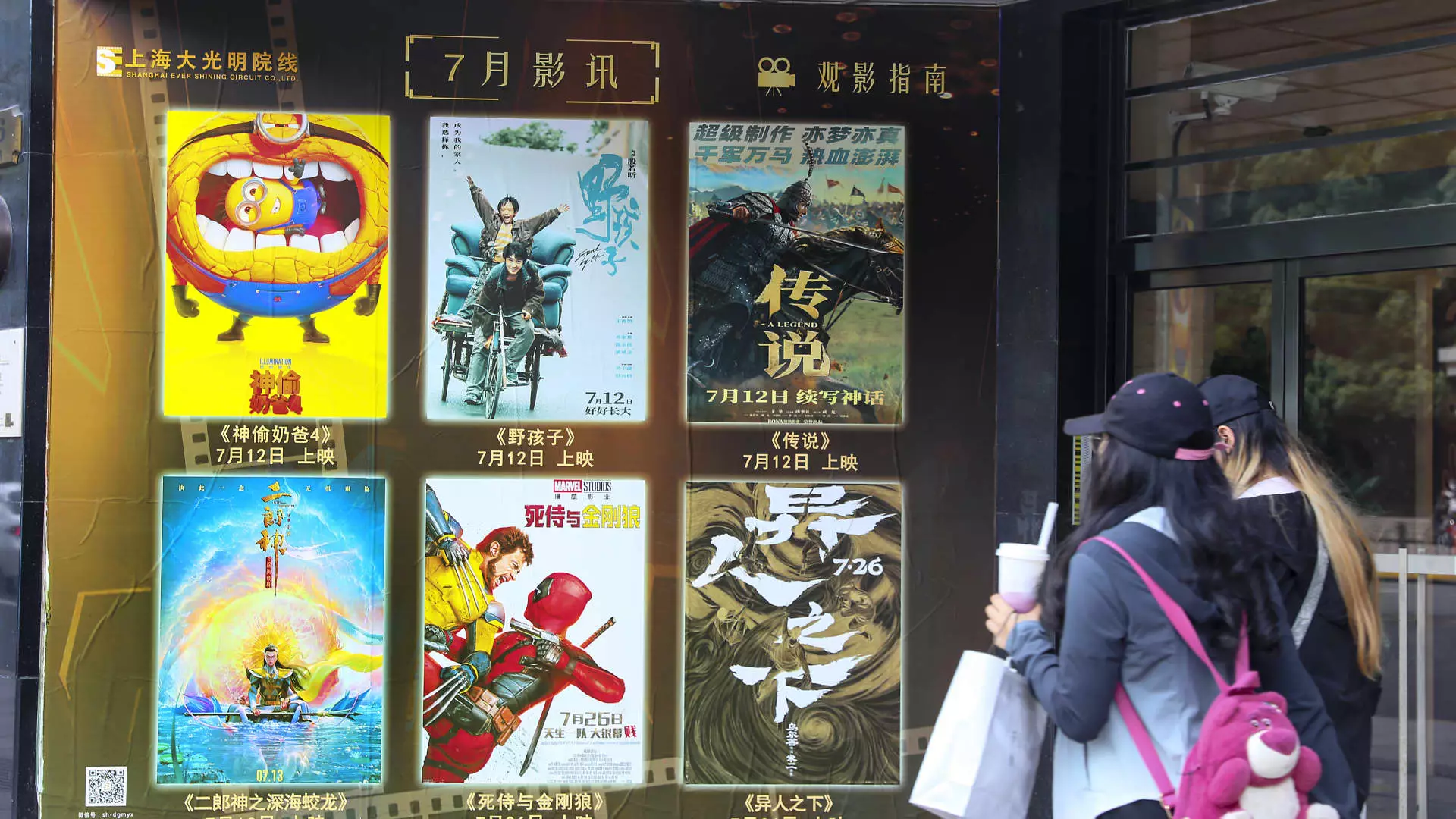Hollywood has long been viewed as a global powerhouse in filmmaking, with American studios once reaping the rewards of international markets, particularly China. However, the recent escalations in the trade war under President Donald Trump have spiraled the industry into uncertainty. As the Chinese government retaliates against U.S. tariffs by curtailing the number of American films allowed in theaters, a grim reality emerges: the Hollywood dream is fraying at the edges. With previous expectations of lucrative box office revenues shrinking, this war may fundamentally undermine the economic viability of U.S.-based entertainment firms.
The Reality of Reduced Box Office Sales
Once, the Chinese market was an essential revenue stream for Hollywood moguls. Films that could pull in significant profit from international audiences were the poster children of American cinema, but that landscape has drastically shifted. According to industry analysts, U.S. studios like Disney and Warner Bros. Discovery are now witnessing a spectator exodus as domestic films dominate local theaters. The allure of Chinese-produced blockbusters is undeniable; audiences are increasingly prioritizing their own stories and cultures over Western interpretations. This creates a dire situation for Hollywood films that used to count on China as a substantial source of income.
Challenges Backgrounding Financial Estimates
As Ann Sarnoff, former CEO of Warner Bros., notes, the recent trends pose serious financial ramifications for American studios. With a diminished outlook toward potential sales in China, studios are revising their financial projections to account for significantly reduced or non-existent Chinese box office revenues. Gone are the days when projected earnings could count on that lucrative market; studios must grapple with new realities that force them to rethink their strategies. Curiously enough, the expiration of the U.S.-China Film Agreement, which previously guaranteed 34 releases a year, only exacerbates this conundrum.
The Rise of Chinese Cinema and Its Implications
China’s burgeoning domestic film industry possesses both sophistication and quantity and is rapidly eating into Hollywood’s traditional advantage. As noted by Aynne Kokas, a University of Virginia professor and author of “Hollywood Made in China,” China is now producing hits like “Ne Zha 2,” which recently shattered box office records without a single American dollar in its production budget. As the nation grows more self-sufficient in its cinema, Hollywood is not just facing competition but is also at a disadvantage—American studios find themselves outgunned in a market they once monopolized.
The Currency Conundrum: An Added Layer of Complexity
Nonetheless, the deteriorating relationship between the U.S. and China has deeper implications than box office changes alone. Fluctuations in currency value play a significant role in international box office performance. When the dollar weakens, American films could theoretically bring in higher returns abroad. Yet the opposite is also true: as the cost of business rises due to increased tariffs and taxes, studios are squeezed even tighter. The looming uncertainty creates a precarious balance that has already begun to rattle stocks, leading to wider implications for Hollywood executives navigating this turbulent terrain.
The Dark Cloud of Uncertainty
Aside from immediate financial concerns, the overarching volatility significantly dampens the entrepreneurial spirit inherent in Hollywood filmmaking. Directors and producers often thrive on risk and creative ventures, but the current economic climate might stifle innovation. A lack of clarity around profit potential hampers iconic storytelling. When faced with the unpredictability of government tariffs and failed negotiations, the very essence of what makes Hollywood so iconic—the willingness to tell bold narratives—could become a casualty of this trade war.
An Industry at a Crossroads
As Hollywood grapples with challenges on multiple fronts, it becomes evident that the golden age of American cinema may be fading. With foreign markets embracing their local narratives and the trade war depriving studios of their financial safety nets, a critical turning point approaches. Executives are left to ponder whether they will adapt and reinvent themselves in this theatrical landscape or whether they will continue to struggle against the tides of change and volatility. The stakes are uncomfortably high, and the resilience of Hollywood as we know it is being tested like never before.

